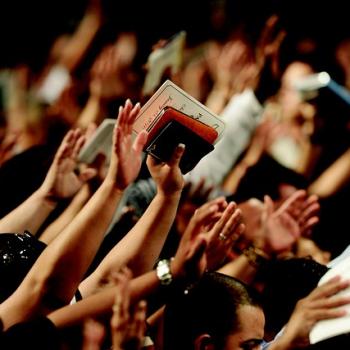“Thanks to the published work of Allen Walker Read, who documented the emergence and spread of OK in 1839 and 1840 with literally hundreds of contemporary citations, it is absolutely clear that OK began as a joke in a Boston newspaper and was transformed by politics and a hoax into the expression we still use today. The trail of written evidence from that day to the present is thick and clear. No other origin is plausible. Yet throughout the history of OK there have been doubts. If it weren’t for the overwhelming evidence, the true history of OK would indeed be hard to believe.”
The joke that got it all started is considerably less than funny today. You had to be there, there being Boston in March 1839. A minor controversy had arisen between certain citizens of that city and its neighbor to the southwest, Providence, the details of which are too trivial to merit elaboration in this limited space. Suffice it to say that the editor of the Boston Post was inspired to invent the phrase “o.k.,” which he defined as “all correct.” As Metcalf says, “The joke that o.k. would be an abbreviation for all correct, when neither o nor k was the correct spelling, was such a stretch that it required the explanation ‘o.k. – all correct’ to follow immediately.”
Whether readers of the Post were left rolling in the aisles has not been reported, but the newspaper’s editor, Charles Gordon Greene, was so enamored of his witticism that he employed it again three days later, and he got it on the road to immortality by elevating it to O.K. This was confirmed in October of the same year when the Evening Transcript, the newspaper of Boston’s elite, proclaimed that “the suspension of the U.S. Bank and its dependencies . . . is O.K. (all correct) in this quarter,” but by then OK had even made its way to New York, and the rest is history.
But history rarely if ever is tidy, and the march of OK into the heart of the language was neither rapid nor sure-footed. Metcalf argues that, in addition to “the fad for joking abbreviations in Boston newspapers of the late 1830s,” the process was nudged along by three other factors: the presidential candidacy of Martin Van Buren in 1840, the presidency of Andrew Jackson and the invention of the telegraph. The first was important because Van Buren acquired the nickname “Old Kinderhook” after his home town in Upstate New York: “OK now could have a double meaning: Old Kinderhook was all correct.” Then as the log-cabin legend of Jackson gained steam, it was claimed – falsely – that in his rough frontier style he had declared a friend “Ole Kurrek (all correct) and no mistake.” Finally, the invention of the telegraph made the use of OK as shorthand for “all right” commonplace. After that, it was clear sailing.
via Linguistically, America is A-OK.












